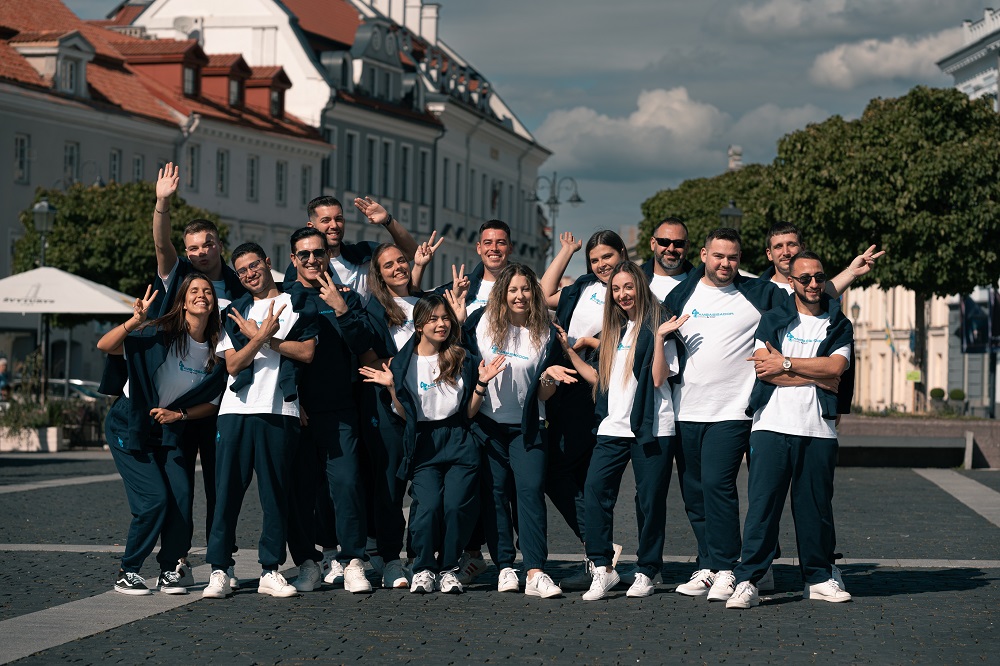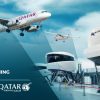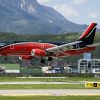 In the fast-paced and highly competitive aviation industry, the importance of cultivating a positive brand image and the importance of brand ambassadors as a potent tool for airlines as these individuals serve as authentic advocates for their employers, offering a compelling perspective on company culture and values. In this article, Monika Ostrauskiene, Head of Marketing at Avion Express, the leading narrow-body ACMI and Charter operator operating an Airbus A320 family aircraft, examines the significance of brand ambassadors in the aviation industry, particularly their influence on recruitment, employee retention, and overall company reputation.
In the fast-paced and highly competitive aviation industry, the importance of cultivating a positive brand image and the importance of brand ambassadors as a potent tool for airlines as these individuals serve as authentic advocates for their employers, offering a compelling perspective on company culture and values. In this article, Monika Ostrauskiene, Head of Marketing at Avion Express, the leading narrow-body ACMI and Charter operator operating an Airbus A320 family aircraft, examines the significance of brand ambassadors in the aviation industry, particularly their influence on recruitment, employee retention, and overall company reputation.
Trustworthy representation
Brand ambassadors have become indispensable assets for aviation companies, particularly in addressing the challenges of pilot and cabin crew shortages. “Their ability to provide trustworthy representation, enhance the candidate experience, and contribute to talent retention is invaluable,” states Ostrauskiene,” Their personal perspectives and experiences resonate with potential candidates, portraying an authentic image of the company”.
In addition to enhancing the recruitment process by infusing it with a personal touch where potential hires feel valued and welcomed, establishing trust in the company, an improved candidate experience occurs because people tend to trust other people rather than faceless corporations and talent retention is possible because Brand ambassadors often embody the company’s culture and values. Their positive attitudes and behaviors influence others, contributing to a more enjoyable and motivating work environment. This, in turn, can lead to higher retention rates.
Strategies for Maximizing Impact
During challenging times like workforce shortages, aviation companies can employ several strategies to maximize the impact of their brand ambassador program. It is important for the marketing department and the whole company to show constant support and appreciation:
- Enhanced Communication: Transparency is key. Keeping employees informed about company efforts to address shortages fosters trust and confidence.
- Leveraging Ambassador Networks: Encouraging ambassadors to actively refer potential candidates expands the talent pool. These referrals often yield individuals who are well-suited to the company culture.
- Recognition and Rewards: Recognizing and rewarding brand ambassadors for their contributions is essential. It not only motivates them to stay engaged but also sets an example for others to follow.
Enhancing the Company’s Image
A strong brand ambassador team significantly enhances the overall image and reputation of Avion Express within the aviation industry. “These ambassadors are genuine advocates who showcase the company’s commitment to excellence, safety, and employee well-being. Their authenticity in sharing their experiences online makes their particular airlines a reputable and desirable employer, even during times of workforce shortages,” explains Ostrauskiene. This authenticity begins with careful selection and continual support.
Building and Maintaining a Dedicated Team
The success of a brand ambassador program is a result of careful selection and consistent support. Selecting enthusiastic and motivated individuals who align with the company’s values ensures the longevity of the program. Continuous communication, resource provision, and involvement in decision-making processes demonstrate the company’s commitment to its dedicated team. The criteria for selection must align with the company’s values.
When selecting individuals to become brand ambassadors, factors such as alignment with the company’s values, dedication to their work, communication skills, and the ability to positively influence others are paramount. Ambassadors should embody the company culture and be passionate advocates. Those who have actively promoted the brand, even without an official title, should be particularly valued for their genuine commitment.
In today’s digital age, social media and online presence play a pivotal role in the success of a brand ambassador program. Airline companies should utilise platforms like LinkedIn, Instagram, and Facebook to connect with the target audience through personal stories and experiences. Sharing updates and insights into company culture gives potential hires a glimpse of what it means to be part of that airline family. Moreover, ambassadors are encouraged to share their expertise and honest opinions on industry topics, contributing to a richer online presence. This all contributes to success through a return on investment.
Measuring Success and ROI:
Airlines should measure the success and return on investment (ROI) of their brand ambassador initiatives through various metrics. These include increased candidate referrals, improved employee satisfaction and retention rates, and positive feedback from candidates and employees. Assessing ROI involves comparing the cost of initiatives to the benefits they bring in terms of talent acquisition and retention, demonstrating the tangible value of a well-executed brand ambassador program.
According to Monika Ostrauskiene, Avion Express measures the success and ROI of its brand ambassador initiatives through metrics like increased candidate referrals, improved employee satisfaction and retention rates, and positive feedback from candidates and employees. Additionally, for Avion Express, and its parent company, Avia Solutions Group, one of the world’s largest ACMI providers operating a fleet of more than 192 aircraft supported by 11,500 highly skilled aviation professionals in 68 countries worldwide, any assessment of ROI should be done by comparing the cost of our initiatives to the benefits they bring in terms of talent acquisition and retention.
Brand ambassadors have become indispensable assets for aviation companies. Their ability to provide trustworthy representation, enhance the candidate experience, and contribute to talent retention is invaluable. By carefully selecting, nurturing, and leveraging a strong brand ambassador team, companies can not only weather challenging times of pilot and cabin crew shortages but also emerge stronger and more reputable within the aviation industry.





